November 24, 2019
Gleanings
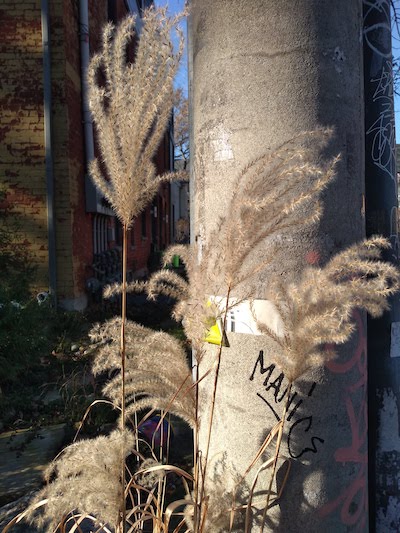
- We are made to believe that there is never enough safety, enough space, enough resources for us all to exist at once. This is a lie.
- What I really love about prizelists are the longlists.
- Let’s talk inner demons, unhappy marriages, and maternal mental health. Halloween might be over, but the haunting continues.
- I have never been good with authority. If I had a more compliant personality I would have lived a less useful life, I think.
- Such as coming from Edmonton as children to race down to the Winged Victory of Samothrace. What is time?
- 50 Holiday Gift Ideas for 2019
- Be kind to your work, even if it’s shit, because all new work is shit, and we all deserve kindness.
- I am too old to drink a damn morning coffee and too old to stretch on a whim, and the best part? Is that it only gets worse!
- When you grow up in a counterculture that explains the world without reference to science and logic, you spend the rest of your life deconstructing things you once believed.
Do you like reading good things online and want to make sure you don’t miss a “Gleanings” post? Then sign up to receive “Gleanings” delivered to your inbox each week(ish). And if you’ve read something excellent that you think we ought to check out, share the link in a comment below.
November 20, 2019
Bits and Pieces
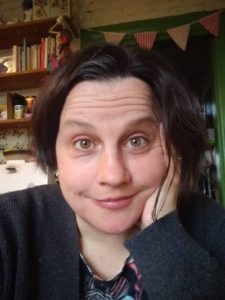
I want to blog, but I don’t know where to start, where to end, where to focus. Which is not only a blogging problem specifically, but also a broader statement about my current state of mind, which is scattered and anxious, as well as mostly fine. But the anxious part is weird, and I’m annoyed because I’ve spent the last while piggy-backing on my husband’s mindfulness, for the sake of efficiency. He’s gotten really into meditation and it’s helped him a lot, and it’s helped me too, because whenever I’m starting to lose it, I call on his knowledge and wisdom, and it’s hugely restorative. But maybe mindfulness-by-proxy is not a great long-term plan, and I might have to start meditating too, but how? There are not enough hours in the day, and of course, I’d rather be reading.
It’s the flip-side though of something I believe fundamentally, which is that the little things we do make a difference, that they matter. But this can also start to feel like an overwhelming kind of pressure. I was talking to a friend of mine who is a paramedic the other day, about CPR, and how I could never remember anything I was ever taught in a first aid class, but how he has restarted hearts and there are people walking around who are only alive because of him. But as I said these words, it occurred to me that if you get credit for all that, you’ve also got to take on all the people who you couldn’t save. The same as how you can’t believe your good reviews, or else you have to believe the bad ones too, except book reviews are less involved with literal peril.
Of course, because we’re talking about me, who never saved anyone, the stakes are very different. I honestly had a crisis sometime earlier this fall because I read an article about a cheese company that was going out of business, and the weight of having insufficiently supported the local cheese industry was weighing heavy on my shoulders. Does it officially count as a first world problem if you’re feeling anxious about your failure to support the cheese industry? I use this example to show that a) I am ridiculous and also b) the idea that one person can make a difference comes up short, is a scam, and diverts from the necessity of all of us working together, but then working together is hard.
Last fall was a difficult time. All our friends moved away, and my novel was rejected (this is when I wrote a post called Publishing a Book is Not a Catapult), and my husband tends to struggle in the fall in general due to cyclical things involving the seasons and his workload, so it all was not the best. This fall, however, even with some of our friends having moved back and new friends, and my book deal—it was still hard. Maybe fall is just hard? And I forget about it over and over with the promise of September and the glorious beauty of trees on display against a sky that tends to be impossible blue.
Last Friday I took my children to a play that turned out to be in December, but I’d thought we were late and the theatre turned out to be three blocks east of where I’d thought it was, so we were running to get there, but instead we were a month early. And then we went to get something to eat, and a crowd of teenage girls at a nearby table were staring at us and then laughing at us, and I still don’t really know why. (No doubt it was for a very complex and interesting reason, right?) They got up from their table and left, but didn’t leave altogether, instead lingering around a corner peering around to look at us and make faces at us, and why was I so upset and intimidated by a group of actual children? And I felt so powerless, and sad, which is never a great way to feel around your own children, and I wish I didn’t crumble under the scrutiny of a bunch of stupid kids, that those girls didn’t take me right back to when I was their age and intimidated by the power of girls like that. I grew up, but they still have that power. Why do I give it to them? Where is my spine?
Although nothing has taken me back to childhood social dynamics like watching my own child navigate those waters. I feel as though I haven’t fundamentally grown or learned anything since I was that age, because her struggles take me right back there. There is no perspective that I have to offer, except that the life I made (my friends, my people, this family that my husband and I have made together) is like a raft that I cling to on the turgid waters of life itself, and all I can hope for my children is that they get one like it.
And for the success of the local cheese industry, obviously.
Just once, I would like to be cool and laid-back. I would like to forget to bring that letter I need to mail, and instead of getting heart palpitations and reorienting my entire day to go back and get it, accept that it would fine if I just mailed it tomorrow. I would like to buy a block of cheese with no regard whatsoever for its origins (am actually quite good at this) and not even feel bad about it. I would like to genuinely not care if someone doesn’t like me. I would like to not be intimidated by teenagers. I would like to stop feeling guilty about decisions made months ago out of my own volition. I would like there to be be somewhere between my entire life being constructed of mundane to-do-list items, and everything going to shit because I didn’t bother to get it all done. I need to catch up on my emails.
I was sick for the last two weeks, a rather brutal cold that slowed me right down, depleting the energy stocks I count on, and they’re still not all back yet. I am really tired. I also was unable to swim the last two weeks, and I have come to count on swimming too as a kind of meditation and energy-release that keeps anxiety in check. I’ve also not done any creative work since I submitted my novel about a month ago, and I think I’m suffering from a dearth of that. So maybe it’s time to write a short story.
But in the meantime, I’ve managed to write this post, to process something of what has been on my mind. And as always, it’s cathartic.
November 18, 2019
Gleanings
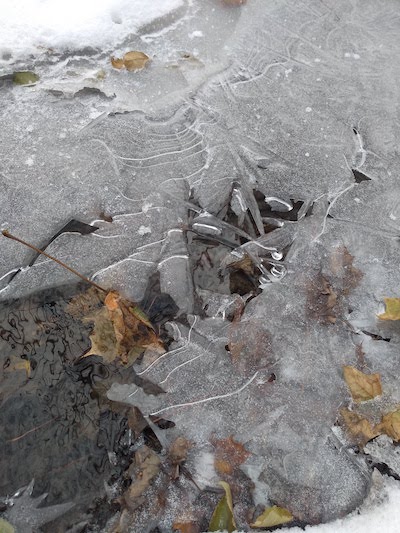
- …a reminder that anything is possible, and that sometimes, surrendering to the surreal is all we can do.
- The process of creating an alternative canon cannot be easy, especially in these days when the very concept of canon-building is viewed with suspicion…
- Can My Blog be the Good Place?
- Maybe we don’t make it through this world whole. But there are moments of clarity, amidst the confusion.
- All I know is that often, what you go looking for is already there.
- …making this the winter I walk in any weather.
- It’s just such meetings…that I know are going to get us through the cold and snow ahead.
- a small dark presence
- Bea’s Favourite Snickerdoodles
Wondering what to read next? Take my quiz to find your PERFECT LITERARY MATCH.
November 14, 2019
Briny Books is Back!
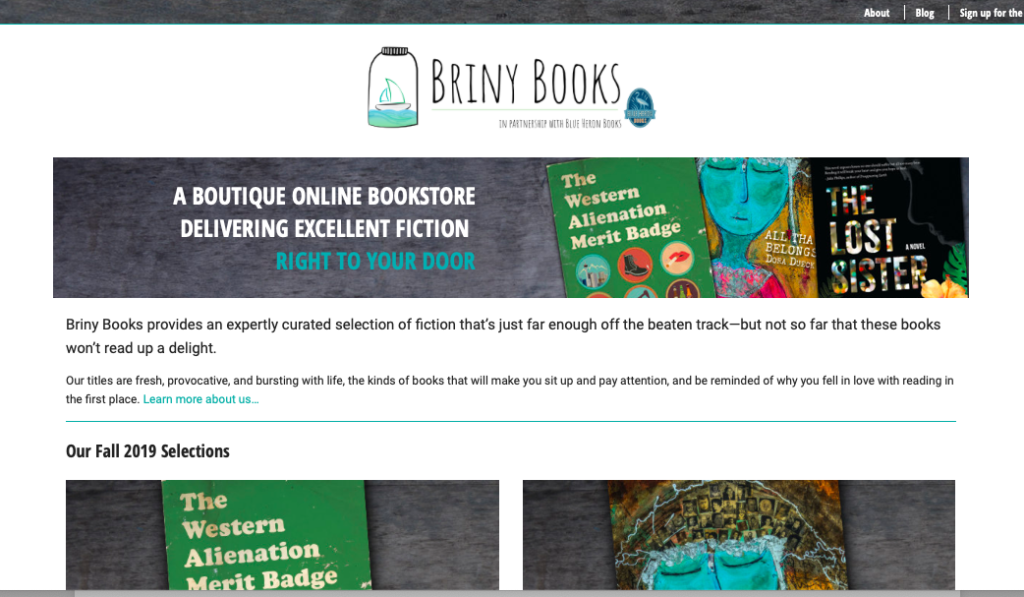
So excited to finally be able to spread the news that Briny Books is back with three gorgeous autumn selections. The first one is Nancy-Jo Cullen’s The Western Alienation Merit Badge, which I had the pleasure of praising already last spring. Next up is All That Belongs, by Dora Dueck, whose work I’ve read online and in literary journals for some time, and I finally read her story collection What You Get at Home last winter and loved it. And then her latest novel blew me away. It’s a gorgeous story about family, memory, history and how we carry these things into the future. And finally, The Lost Sister, by Andrea Gunraj, a story of solidarity and resilience about a girl growing up in Toronto whose sister is murdered and who finds strength and solace through a friendship with a woman who’d survived Nova Scotia’s Home for Coloured Children (and this part of the book was inspired by the author’s friendship with an actual survivor). I’m so proud to be championing all these books, and especially excited to remind you that SHIPPING IS FREE (for a limited time) so do some shopping, and some holiday shopping, and be the bookshop customer you wish to see in the world.
November 13, 2019
Agnes, Murderess, by Sarah Leavitt

“When Did Everybody Become a Witch” was the title of an article a friend sent me a few weeks ago, a friend from my coven, no less, and I was still thinking about the article on Halloween night (of course) when I settled down to read Agnes, Murderess. The second book by Sarah Leavitt, whose first was the acclaimed graphic memoir Tangles: A Story About Alzheimers, My Mother and Me, this one tells the story of Agnes McVee, a legendary 19th century serial killer who ran a roadhouse in 108 Mile House, BC. A woman of whose actual existence there is no evidence, except for a self-published pamphlet by an amateur historian from 1973.
“I have thus felt free to reimagine Agnes’s story from her childhood to her death,” Leavitt writes in her book’s afterward, and the whole book becomes an exploration of storytelling and myth making. It begins on an island in the Scottish Hebrides, where young Agnes lives with her grandmother, who really does seem to be a witch, and her mother, who was stolen away from a genteel life in London by a seafaring man who brought her to his home and then disappeared forever. For reasons that might be familiar if you’ve ever read stories about witches, Agnes and her grandmother are not too popular with the local townsfolk, though she finds an affinity with a young man from the village, and together (desperate times call for desperate measures) Agnes and Seamus find a way for her to escape her grandmother’s yoke and head off to London together. But it turns out that her grandmother wasn’t Agnes’s whole problem after all, or maybe she was because Agnes senses the woman’s presence still haunting her, stirring her, pulling away from the kind of life she is striving for. A life which she glimpses further through a friendship with an upper-class woman who gives her books to read and the companionship she’s looking for—and then a humiliating betrayal changes everything, cementing Agnes’s trajectory toward a life in Canada and, yes, punctuated by acts of murder.
It’s a complicated story, with everything queered—not least of which is the line between truth and fiction. Is Agnes a villain? And if she is, what does it mean that she might have our sympathy? Are we, too, bewitched? And what does it mean that these stories of transgressive women at our particular moment in time? Most interestingly, Leavitt leaves these questions unresolved. As her drawings are simply sketched, so too is the story, providing plenty of room in which the reader can sit uneasily.
November 11, 2019
Gleanings
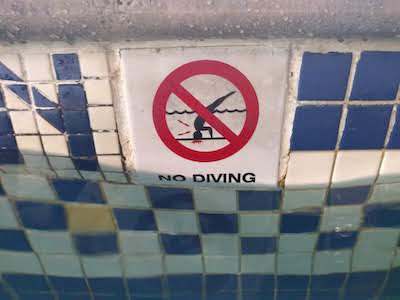
- Does a rainbow trout, like human beings, have to develop coping mechanisms to deal with the life’s great challenges?
- And thus Raphael became like my first boyfriend, someone I thought of fondly from time to time over the years, holding a special place in my heart although I had long moved on.
- Confessions of a Failed Self-Help Guru
- …it’s time we stop, as parents, crediting ourselves for our fortunate accidents
- The guiding principle of the bookstore, located in Toronto’s Roncesvalles Village neighborhood, is social justice, and it makes itself known right away.
- The university, I said, is not (despite what its denizens too often seem to believe) the only place you can have an intellectually stimulating life.
- The issue is women’s rights, pure and simple. Any campaign to reverse abortion rights is an attack on you — regardless of your personal beliefs.
- Almost without fail, the more bafflingly short an ingredient list and the more stunningly delicious the outcome, the more likely it is to rivet me.
- Which is a roundabout way of saying that time has passed, but yes, a month ago we were by the sea.
- How in the name of squatty pink-frilled alarm clocks?
- I’ve read other translations but this one has always felt like Homer to me.
- Because it feels weirdly lovely to be blogging from Rome and just sharing these things that I’m basically almost crying about when I see them. Rain on a windshield.
- “The book didn’t help my confusion at all, but I kind of think that’s okay,” she says.
- Life is too short for tepid colour combinations like greiges and taupes.
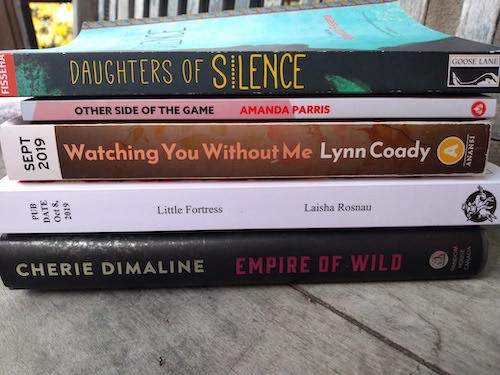
November 6, 2019
Awards Season Recommendations

I had a very croaky voice, but still go to talk about books on the radio today, spotlighting some of my favourites that have been celebrated during literary awards season. I hope readers continue to read widely (and often), and don’t necessarily let awards and awards lists dictate their entire reading lives, but awards and their shortlists in particular can also offer some incredible reading suggestions. Listen here to hear my picks—I come in at 30.00.
November 5, 2019
The Dutch House
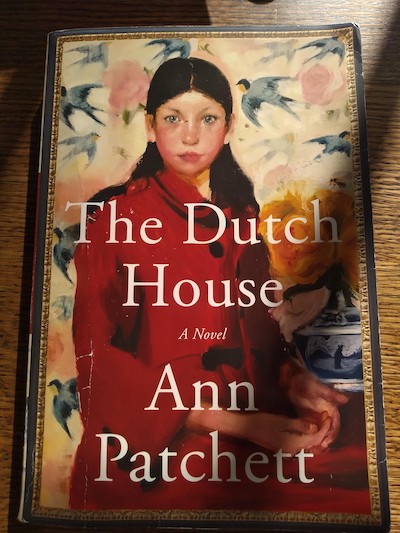
I knew I was in trouble the night I was reading in the tub, and then called for my husband to bring in a box of baking soda and a cloth so I could scrub the grout between the wall tiles. My grout is dodgy at the best of times, but it really does take a special level of “not into a book” to drive me to clean my bathroom instead. Which was not the case with Ann Patchett’s latest novel The Dutch House, which I finished reading last night in a two hour whirlwind. Patchett’s books are a bit hit-and-miss with me—truth be told, I didn’t love Commonwealth. I liked it. It didn’t drive me to scrub the tiles, I mean, but it didn’t live up to my high expectations. Oh, but The Dutch House swept me away, and the twists and turns were never what I’d expected them to be. I have no idea how you’d dream up a narrative like this, the form and shape of it, I mean. I’ve been thinking about the specificity of the narrative of Ian Williams’ Reproduction, and this book is similar, the curious shape of family and of life and how few books actually manage to properly express that.
November 4, 2019
Gleanings
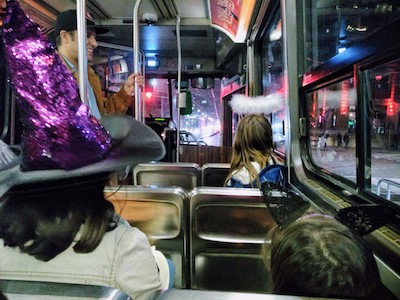
- I kept making notes. Why do some road trips lead to essays and some don’t? I have no idea.
- If you’ve never had a look under the structures that support what we take for granted, give it a try. That applies to more than bridges.
- Oh, dear readers, there was an abundance of ethereal moments…
- CERTAIN THRILLS AND CHILLS OF THE PREVIOUS MONTH STUCK WITH ME. AND, I WANT TO KEEP REMEMBERING THEM AS I MOVE AHEAD.
- I want for everything to make sense; but it doesn’t.
- And we create things, truly, to transform our own lives.
- These amazing women and their epic to-do lists make me feel as if I’ve found my tribe.
Do you like reading good things online and want to make sure you don’t miss a “Gleanings” post? Then sign up to receive “Gleanings” delivered to your inbox each week(ish). And if you’ve read something excellent that you think we ought to check out, share the link in a comment below.
November 3, 2019
Neither Useful, Nor Interesting

Oh, yet another blog post that begins with me talking about something I heard when I was listening to a podcast. The Mom Rage Podcast, no less—am I predictable yet? This one was about vaccines (it was so good!), featuring a conversation with medical anthropologist Samantha Gottlieb about the HPV vaccine and “vaccine-hesitant communities.” She spoke about how many people are put off by doctors’ refusal to entertain questions about vaccines at all, which only serves to underline skepticism. When the facts are that vaccines can cause risks, that vaccine injuries and reactions do happen. They happen on a disproportionately tiny scale, with risks minute. It’s more dangerous to get in the car and drive down the road, and we all do that all the time, but still. Doctors don’t want to admit it. It complicates the narrative, and complicating the narrative of vaccination is perilous, literally life and death.
Of course, I like complicated narratives. To complicate the narrative is to get as close as we can to something called truth. I don’t want to live in an echo chamber, a bubble. I relish conversations with my economist friend about the virtues of capitalism; I appreciate the activists who’ve open my eyes to the violent reality of racism; my morning routine is basically putting on shoes, but I’ve got big respect for people for whom make-up is a form of personal expression. On Twitter, I used to actually follow the person whose booking at the Toronto Public Library has created such controversy over the last few weeks, because her take on sex-work complicated what so many of the other feminists in my feed were talking about, and I found that complicatedness useful and interesting… until it wasn’t. I unfollowed this person when she started writing online attacks on the grieving father of a dead teenaged girl. When I realized this “journalist” (whose platform is her own website, which she likes to call “Canada’s leading feminist website” [according to whom?]) relishes attention more than any kind of truth, and had figured out that courting controversy was the fastest way to get there (and solicit donations). When I realized she was more invested in dogma and ideology than the feminists whose thinking (and actual lived experiences) she purports to oppose and complicate. This person is neither useful, nor interesting. She is sensationalist, and purely disingenuous. She is the anti-vaxxer of gender politics. She is not “just asking questions.”
I think there is room for questions and nuance in conversations about gender. Unlike the speaker who was provided space at the Toronto Library, I think that none of this is simple. I wish that the City Librarian had listened to so many smart and respected voices calling on her to cancel the speaker’s booking—the milquetoast mayor called her on it, for heaven’s sake. And no, these people weren’t “bullying the library.” You can’t bully a library. This is nonsense. But I also know that people too are complicated like their issues are, and there are many of them (myself among them) who don’t like being told what to do, to have demands made of them, who double down instead of considering the opposite. We put a lot of truck in unapologeticness in feminism, for better and for worse. I don’t think that we should be boycotting the library, because for so many people, especially marginalized ones, the library is their most accessible cultural institution. Because the library belongs to all of us. Because the people who have the least are the people that lose the most, and I don’t really know what the end-game is of a library boycott, especially now that the event is done and dusted. Though I commend all the people who’ve taken a stance and I do think it’s been hugely worthwhile—the turnout to the protest on Tuesday evening was an incredibly show of solidarity, and the issue has led to all kinds of conversations, which are necessary as we ask questions in generous and thoughtful ways, and figure things out as a society—a process that is far more useful and interesting than anything the speaker might have said on any platform. (This is the work, people. We’re doing it. Even if, or maybe especially if, you’ll only doing it all in your head.)
I do know what it’s like to have my body be the site of a debate. I’ve stood on the sidewalk holding a sign listening to men argue over the semantics of abortion, as to the precise point where the procedure should or should not be permitted, and I can tell you that it’s dehumanizing, insulting, ridiculous, and neither useful nor interesting. And so I have an understanding of where trans people are coming from when they refuse to entertain questions, conversations or debate about their bodies and their identities. When the field of debate is your lived reality, listening to people arguing in abstract terms and citing outlying circumstances as emblematic of the issue at hand—for anti-choicers, it’s all about the case of a particular doctor and abortion provider who was convicted of murdering infants, same as how the anti-trans crew is always going on about aestheticians and waxing, as though these are the actual goal posts and such things are happening every day—is exasperating, traumatic, and a gigantic waste of everyone’s time.
I think there is room for questions and nuance in conversations about gender, because we live in a world where there are no absolutes, but I am sure that insisting on those conversations at this precise moment is not the most pressing thing we’ve got on the go. That democracy and freedom hang in the balance, as so many others might put it in their letters to the editor. I think back to the vaccine analogy, and the distrust and violent suspicion at the heart of the anti-vaccine movement, which is not so far apart from that of anti-trans activists, really. In both cases, there is an over-estimation of vulnerability, and a convenient disregard for those who are actually vulnerable after all.
Of course, there are conversations that need to be had, questions that need to be answered, but not like this, not by this person. As with the vaccine conversation, the harms—here, it’s increased violence against and vilification of an already vulnerable population—really do outweigh the benefit, which is mainly the privileged and smug self-assurance of living in a society where any idiot gets to spout her rubbish in a public building. And if such self-assurance is our guiding principle, instead of listening to, learning from, and taking care of each other, then what does it say about us?





